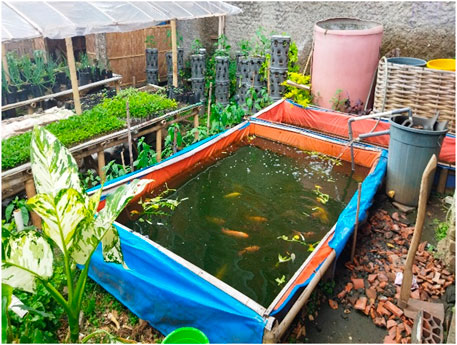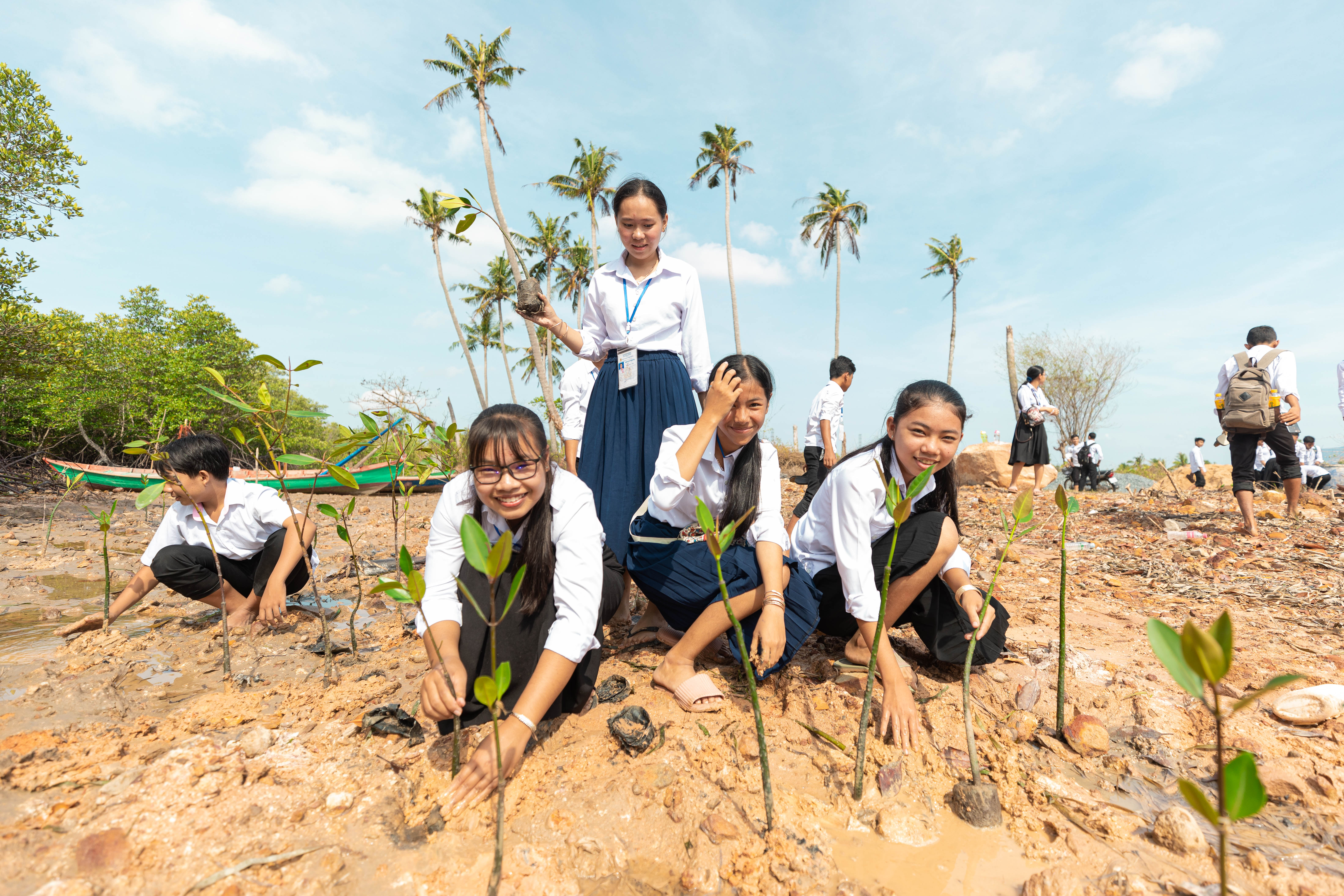How httpssdg2030indonesia.org is Helping Indonesia Reach Its Climate Goals
17 set 2023
Indonesia, an archipelago nation known for its rich biodiversity and stunning landscapes, faces significant challenges in addressing climate change. As the world grapples with environmental crises, Indonesia’s commitment to sustainable development has never been more crucial. The website https://sdg2030indonesia.org/ plays a pivotal role in this endeavor by serving as a platform that unites government efforts, local communities, and international partners towards achieving climate goals aligned with the Sustainable Development Goals (SDGs). This article delves into how this platform fosters collaboration, drives innovation, and mobilizes resources to help Indonesia reach its climate ambitions. Posted by https://sdg2030indonesia.org/
The Role of SDG 2030 Indonesia in National Policy Framework

The alignment of national policies with the SDGs is vital for any country looking to make meaningful progress toward climate goals.
Establishing a Comprehensive Policy Framework
The SDG 2030 Indonesia initiative provides a comprehensive framework that guides national policies in line with global sustainability objectives.
This involves integrating the SDGs into various sectors, including forestry, agriculture, energy, and urban planning. By embedding sustainability principles into these areas, the government can ensure that economic growth does not come at the expense of ecological integrity.
Moreover, this platform facilitates the sharing of best practices and lessons learned among regions, helping policymakers understand which strategies work effectively and why they resonate with local communities.
Enhancing Stakeholder Engagement
Effective climate action requires the involvement of multiple stakeholders—local communities, businesses, non-governmental organizations, and academic institutions.
Through initiatives led by SDG 2030 Indonesia, stakeholder engagement is greatly enhanced. The platform acts as a conduit for information exchange and encourages participation from diverse groups.
Workshops, seminars, and community outreach programs organized under this initiative empower citizens to take ownership of their environment while fostering a culture of accountability and transparency.
Developing Monitoring Systems
To achieve its climate goals, Indonesia needs robust mechanisms for monitoring progress.
SDG 2030 Indonesia helps establish these monitoring systems to assess how well the country is doing in relation to its climate commitments. Regular evaluations and data collection allow policymakers to adjust strategies as needed, ensuring that the nation remains on track toward its objectives.
The emphasis on data-driven decision-making empowers not only the government but also civil society to hold authorities accountable for their commitments.
Fostering Innovation for Sustainable Solutions

Innovation is the cornerstone of effective climate action, and SDG 2030 Indonesia recognizes this vital aspect.
Promoting Green Technologies
A significant focus area for the initiative is the promotion of green technologies designed to mitigate climate impact.
From renewable energy solutions such as solar and wind power to waste management systems, the platform encourages research and development in sustainable technologies. By facilitating partnerships between universities, research institutions, and industries, it nurtures an ecosystem conducive to innovation.
Moreover, the initiative also supports small and medium-sized enterprises (SMEs) that are exploring eco-friendly products and services, making sustainability accessible to all levels of the economy.
Encouraging Circular Economy Practices
In the quest for sustainability, shifting from a linear to a circular economy proves crucial.
SDG 2030 Indonesia advocates for practices that minimize waste and maximize resource efficiency. This includes promoting recycling, upcycling, and responsible consumption habits among consumers and businesses alike.
By advocating for circular economy principles, the platform inspires a collective mindset shift where people recognize the value of materials and resources, ultimately contributing to reduced environmental footprints.
Harnessing Data and Technology
The integration of technology and data analytics is revolutionizing how Indonesia approaches climate issues.
SDG 2030 Indonesia leverages digital tools to monitor climate patterns, assess risks, and develop targeted interventions. By harnessing big data, machine learning, and artificial intelligence, the initiative enables better forecasting and resource allocation based on real-time information.
Furthermore, the use of mobile applications can facilitate citizen reporting on environmental conditions, thereby enhancing community participation in climate monitoring and action.
Mobilizing Resources and Financing Mechanisms

Achieving climate goals requires significant financial investment, and SDG 2030 Indonesia serves as a bridge between various funding sources and local projects.
Attracting International Investments
Global funding for climate initiatives has surged in recent years, yet many developing nations struggle to tap into this pool of resources.
SDG 2030 Indonesia actively seeks to attract international investments by showcasing viable projects and success stories that personify both sustainability and profitability.
Through engaging presentations and dialogue with foreign investors, the platform builds trust and credibility, encouraging them to invest in Indonesian sustainability projects—from renewable energy installations to conservation programs.
Strengthening Local Funding Channels
While international investments are critical, bolstering local funding sources is equally important for long-term sustainability.
The initiative works to strengthen local financing channels by creating awareness about available grants, loans, and investment opportunities for local communities and businesses.
By empowering grassroots organizations with access to financing, the platform supports localized climate action tailored to specific regional challenges.
Building Public-Private Partnerships
Public-private partnerships (PPPs) are instrumental in fostering innovation and implementing large-scale projects.
SDG 2030 Indonesia champions collaborative models where private entities team up with government bodies to tackle climate challenges. These partnerships offer a unique blend of resources, expertise, and networks, enabling the execution of complex projects that require diverse skill sets.
Moreover, such collaborations often lead to innovative financing solutions, allowing projects to be carried out without solely relying on public funds.
Raising Awareness and Education on Climate Issues

Education and awareness are fundamental to fostering a culture of sustainability.
Implementing Educational Programs
SDG 2030 Indonesia places great emphasis on educational initiatives aimed at increasing awareness of climate issues among various demographics.
Schools, universities, and community centers become platforms for disseminating knowledge about sustainability practices and climate change impacts.
By incorporating climate education into curricula, younger generations develop a sense of responsibility and stewardship over natural resources, positioning them as future leaders in the fight against climate change.
Engaging the Media
Media plays an essential role in shaping public perception and discourse surrounding climate issues.
SDG 2030 Indonesia collaborates with media outlets to create engaging content that highlights ongoing sustainability efforts and educates the public on climate-related matters.
Through storytelling, the media can humanize climate data, making it relatable and inspiring action across various segments of society.
Community Outreach and Activism
Grassroots movements are powerful agents of change, and SDG 2030 Indonesia acknowledges this fact.
By supporting community-led campaigns, the initiative empowers individuals to take active roles in climate advocacy. Workshops, rallies, and volunteer programs cultivate a sense of solidarity and urgency, motivating communities to implement local solutions tailored to their unique circumstances.
FAQs

What are the primary goals of SDG 2030 Indonesia?
SDG 2030 Indonesia aims to align national policies with the United Nations’ Sustainable Development Goals to promote sustainable practices, enhance climate resilience, and engage various stakeholders in achieving shared climate objectives.
How does SDG 2030 Indonesia promote collaboration among stakeholders?
The platform facilitates workshops, seminars, and outreach programs that encourage diverse stakeholders—government, communities, businesses, and NGOs—to share knowledge, experiences, and strategies in addressing climate challenges collectively.
In what ways does the initiative support innovation for climate solutions?
SDG 2030 Indonesia promotes green technologies, circular economy practices, and the integration of technology and data analytics, creating an ecosystem that nurtures innovative solutions for sustainability.
How does the initiative attract funding for climate projects?
SDG 2030 Indonesia showcases viable projects to international investors and strengthens local funding channels by raising awareness about available grants and investment opportunities, fostering a conducive environment for financial support.
Why is education important in the context of SDG 2030 Indonesia?
Education raises awareness about climate issues and instills a sense of responsibility in future generations. The initiative implements educational programs to engage different demographics, thus promoting informed action and stewardship over natural resources.
Conclusion
Indonesia stands at a critical juncture in its battle against climate change, and the contributions of platforms like https://sdg2030indonesia.org/ are invaluable. Through a multifaceted approach encompassing policy reform, innovation, resource mobilization, and education, the initiative paves the way for a sustainable future that aligns with global climate goals. As Indonesia strives to balance economic growth with environmental preservation, the collaborative efforts facilitated by SDG 2030 Indonesia present a powerful example of how collective action can drive meaningful progress in addressing one of the most pressing challenges of our time.
